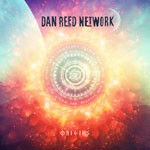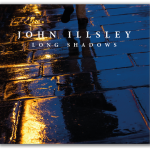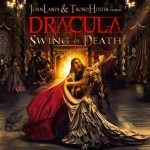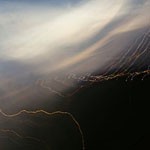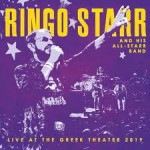Fusion/prog rock band Zzebra recorded two studio albums in the mid 70s (and a 3rd in 1975 that remained unreleased for 35 years), and some wonderful music that should have been much more in the public eye. Joe Geesin recently interviewed bassist John McCoy and saxophonist/flutist David Quincy about their time in Zzebra.
Read Joe’s review of the live Zzebra album here
John McCoy
1) You started out as a guitarist, how did the move to bass come about?
Yes I started as guitarist while still at school In Yorkshire based Beat Group The Drovers on the Yorkshire Working Men’s Club and Pub circuit, and after ,The Jinx, The Brian Noone Orchestra etc. I saw an ad in The Yorkshire Post saying Professional Band need Guitarist and Bass player for German tour.
I was straight on the phone and on the train to Leeds ,when I arrived I was told the guitarist position had been filled! but…they still needed a Bass player…So of course I said I could play bass! And I got the gig using a bass that was already there.
Next day with my Dad’s help I went to Music shop Kitchens in Leeds and traded my Vox Ac30 and Watkins Rapier for a Selmer Goliath and Treble and Bass amp and a Fender Precision Bass in Candy Apple Red.(I still have it and use it though it looks somewhat different after all these years and stupid abuse) I was too young to appreciate how good that setup was. Anyway off to Germany to play American Military Bases and German Clubs.
We played Classic Stax /Motown Soul hits crossed with crazy humourous moments courtesy of band leader / drummer none other than bizzare comedian Charlie Chuck! His drum solo featuring raw eggs and flour was memorable.
2) When (and how) did drums, cello and trumpet become part of your repertoire?‘
I became quite good playing with the Huddersfield Youth Orchestra and Salvation Army bands Christmas concerts. Playing drums was something I picked up along the way….to the annoyance of various drummers.
3) Did you record anything with Clyde McPhatter when you toured with him in the early 70s?
On returning to Britain and going to auditions in London I somehow landed the gig with Clyde McPhatter’s band, I’d learnt a lot of the songs while in Germany checking out the soldiers American imports….Stax, Motown etc It was a kind of Soul Review Show, Clyde was very professional. As far as I know there are no recordings of the tour.
4) What can you remember about your work with Curtis Muldoon?
Curtiss Maldoon were Clive Maldoon and Dave Curtiss. A pair of singer/songwriters in the style of CSNY or Neil Young playing acoustic guitars. Liam (Genocky) auditioned the same day (he turned up with his drums in a wheelbarrow!) and we gelled together immediately and joined the band who were signed to Purple Records. We clicked and went on to record the Maldoon album (at Air Studios) did a few shows, a couple supporting Purple, went off to America and did shows supporting Badfinger (RIP All) who were great.
As Purple management decided to promote Clive Maldoon (R.I.P.) as a solo artiste the band was wound up and Purple management put Liam and I with Legendary Folk Singer Julie Felix and we toured with her here and abroad…Hong Kong even!. After “Going to the Zoo” for a while I was politely let go as Julie thought electric bass wasn’t for her…(probably too loud) I was replaced by the great Danny Thomson.
5) How did joining Zzebra come about?
I didn’t join Zzebra . The band came about when Liam and I were booked for a session (film soundtrack) and met Dave Quincy (Sax) & Terry Smith (Guitar) of IF and Loughty Lasisi Amao from Osibisa playing Sax, Flute, and an incredible array of percussion. Dave & Loughty were looking to work together already and Liam and I were the catalyst that made it all work. At the end of the session we kept on jamming/playing into the early hours and all decided that we should make it a permanent band somehow. Through Dave Quincy’s contacts he was able to find finance mostly through filmaker John Boorman and we began rehearsing writing and doing gigs around London.
Personally this was a great opportunity for me to learn from more experienced musicians ,and develop my writing. I learned a lot about “feel” from Loughty and discovering his African approach to mingling and crossing rhythms/time signatures opened my mind/playing to adventurous ideas away from the limited classical training I had.
We were free to express ourselves musically and it was very enjoyable socially and musically. We went to residential studio Escape in Kent and lived for an intense period of creative recording. under the guidance of the great Ken Burgess Producing along with engineer Tony Taverner a dream team who got the best out of this strange mix of people and styles. It just worked. By now we had been joined by Gus Eden from pop band Love Affair who brought yet another style/direction to the band.We signed to Polydor and released the first album Zzebra.
We became popular doing gigs at the Marquee, Reading festival, tours with Chick Corea’s Return to Forever, Soft Machine, Yes etc…and became the house band at Ronnie Scott’s Club supporting some great American jazz artists. Dizzy Gillespie, Elvin Jones, George Benson etc etc.
After the first album we parted company with Gus Eden and he was replaced by Keyboard whizz Tommy Eyre and Singer Alan Marshall courtesy of introductions by Ken Burgess. Tommy had seen the band at the Marquee and was keen to be involved. We returned to Escape Studios to begin work on a second album but early on it became obvious that guitarist Terry Smith was not at performing to his full potential. He had alcohol problems so we were short of an equally impressive guitarist.
I recorded some rhythm guitar here and there but we needed a great soloist…..at one point the great Jeff Beck came and sat in on a couple of tracks thanks to his friendship with Ken & Tony .For me it was a dream, loved and still love Jeff’s playing. We did as much as we could at Escape studios and returned to London’s Advision Studios to finish and mix the tracks. Tommy Eyre told us of a fantastic young guitarist from Sheffield who came down to audition.
This young guy came in, sat down and played the beautiful solo on “Youve lost that loving Feeling” and that was it! He was in. Steve Byrd joined the band and became a major part during the promotion of that album “Panic!”. The band had evolved into a much more organised affair ,musically ,arrangements were much tighter due to “live” time restraints….we had to cut down the improvising elements ,which were one of the exciting parts of a Zzebra show ,to more funky shorter selections. I was learning all the time that I could play almost any style and wanted to experience all styles.
6) Was this your first time working with Liam Genocky and Steve Byrd?
Yes this was the first time Liam and I played with Steve Byrd.
7) The two albums (Zzebra, 1974 & Panic, 1975) were very well received, did you think the band should have been bigger?
I thought the band should have been bigger…..it was kind of a “musos” band ,I think a lot of our more unusual tunes went over a lot of peoples heads .
8) What can you remember about the tours?
Not too much…..its a long time ago!
9) Was there any overlap with your work with Scrapyard?
Only that I introduced Bernie Torme to more adventurous musical ideas/directions, Scrapyard was short lived and mutated into McCoy and Samson….but that’s another story.
10) The live album is excellent, did you consider a live album at the time? And how did this release come about?
Thanks. No we didn’t consider a live album at the time. This was a concert organised for a Radio Bremen broadcast, we had to keep the improvising to a minimum and play our “more accessible” tunes. I was approached last year along with Dave Quincey by MIG records who had licensed the recordings from Radio Bremen and were keen to release. After all this time it had become historically interesting partly due to the post Zzebra success of the various members.
11) At times on the live set the rhythm section on the live set is reminiscent of (Eric Burdon’s backing band) War; do you see any similarity?
Wow! I find that interesting but in retrospect yes there are similarities. Which I didn’t notice at the time
12) It must have been disappointing that your third album didn’t get released until 25 years later?
Yes it was disappointing but half way through recording Polydor in their wisdom decided that Punk was the future and we definitely didn’t fit into that category. Understandably funding a seven piece touring band was not making sense to them.
The A&R Dept. had a “New Broom” in the guise of Chris Parry who was keen to make changes at the label. The timing couldn’t have been worse for me personally, my loyalty to Zzebra swayed my decision not to take the offer of joining Curved Air (although I played a couple of shows with them) .
25 years later I was given tapes of the third album and copies of some of the Radio Bremen show by Ken Burgess. Through my involvement with Angel Air Records I compiled and released those tapes as “Lost World” ….which it really was. Bands like Zzebra could not happen in today’s world.
13) You worked with Liam and Steve across several sessions after that; which ones stand out?
After Zzebra split Liam, Steve and myself became busy on the session circuit which was busy at the time ,once again turning to whatever musical style was required. We did a lot of stuff, from soft porn soundtracks to classical affairs. One or two stand out sessions were ,”The Monster Mash” with Vincent Price on vocal! Another good one was the main theme of “Space 1999″ a sci-fi T.V. show which still gets aired today.
14) What led to the image change (the shaven head) when you joined Gillan?
The image change. After the end of Zzebra I was struck by a condition called Alopecia which is the medical term for severe and almost total hair loss. It hit me very quickly. and after being offered a few ridiculous wigs and toupes I had no choice but to shave what little was left and accept it. In those days it was very very unusual ,whereas today it’s hard to find a band without a McCoy clone!
I quickly realised that this was a gift (from God?!) It gave me a new level of confidence and I became known and busier than ever before. I was playing with a band called VHF at the time and I did my first bald head gigs with them. I realised what a great impact the image was having ,people remember and can describe what they have seen much easier than trying to describe what they have heard.
15) A little off piste but I’ve always wanted to you ask you about Tony Rees, who I think was so underrated. How did you meet and did you want to work together more?
Tony T-Bone Rees was the singer in the band Welcome who I joined in 1969 .Many years later we had stayed in touch trying to get various projects off the ground .After Gillan when I was writing songs with Tony he was the obvious choice for my solo albums ,someone who was a friend I could trust and some of his vocals are top class. Being the singer with McCoy was a hard job when the previous singer of my songs was Ian Gillan there would be constant comparisons.
Nevertheless we recorded some great performances from Tony evident on the “Think Hard ” album and the mini album. We had a tour organised and at the Marquee the pressure got to Tony he was drunk, he’d eaten too much, wasn’t well and quite frankly blew it…unable to deliver anything like his recorded performances.
The backers for the tour, publishers, promoters etc were all there at the Marquee and they all said he’s got to go! He’s embarrassing etc etc and they would pull the plug, cancel everything so I had no choice but to quickly find a replacement. It’s another story…last I heard of him he was running a country pub somewhere.
16) How would you like Zzebra to be remembered?
I would like Zzebra to be remembered as a unique band that could never be again. An experimental improvising multiracial treasure chest of influences played by people simply for the love of music.
Dave Quincy
1) How did it all start?
My younger sister brought a recorder home from School and I started on that in 1956.
I then bought a clarinet off a mate for £5 and begin to learn about Music and I loved Modern Jazz. I then bought a second hand alto saxophone in a junk shop cheaply, and I was listening to USA Saxophonist Early Bostic playing the song ‘Flamingo’ and that opened up the door to all the American musicians like Charlie Parker. But I also became a big fan of Bill Haley & The Comets like so many others. So you could say this was my introduction to Jazz Rock music in the late 1950′s.
I also realised how important it was to understand the piano. and I began composition and theory. I started doing gigs like Weddings etc. when I got myself a decent tenor sax and got involved with local rock bands like Sounds Incorporated for a while, but I could not join them because I had an apprenticeship for 5 years with the Daily Telegraph newspaper, Sounds Inc went on to support the Beatles in the USA.
My first real pro gig was with Jet Harris when he left the Shadows and formed The Jet Blacks. The first major tour was with Little Richard and Sam Coon in 1962, Sounds Inc were also on this tour.
I carried on with The Jet Blacks after Jet reformed a band with Tony Meehan. In 1965 I joined Chris Farlowe’s band, Albert Lee the guitarist and organist Dave Greenslade were in the band, I was with them for a Year or so. I then went back to concentrate on JAZZ and worked with guitarist Terry Smith quite a lot.
We did Ronnie Scott’s Old Place Club around 1967/68. During this time I did odd session work and played on some recordings with Manfred Mann. I also started up a jazz club in my home town Beckenham in Kent in 1967 on Thursdays and Sundays, this was very successful with players like John McLaughlin, Tubby Hayes Ronnie Scott, John Surman. David Bowie took over the Sunday nights in 1968, I did an interview with Journalist Chris Welch for Jazzwize on this.
2) How did the band If come about in 1969?
Saxophonist Dick Morrisssey and Terry Smith were working with the J.J Jackson Band in 1969 and the asked if I was interested in forming a band, J.J.’S band was managed by Lew Futterman, a New Yorker who also managed Jack McDuff. I agreed to get involved and suggested singer J.W.Hodginson who i met when I worked with him in the Jimmie Nicol Band, who stood in for Ringo Starr on a Beatles tour in 1964.
The band IF was then formed, Lew Futterman decided to call the band IF. The first track we recorded was my song ‘What Can A Friend Say’, Futterman managed to get records deals with Island Records, and Capitol Records in the USA, on the strength of this recording, with great solo’s from Dick and Terry and fine vocal from J.W.
IF went on to record 4 albums which are still available through Repertoire Records. I think the big breakthrough for jazz rock music was the recording by USA Band Blood Sweat And Tears 1968. The original band split in 1972 when Dick became ill. He did continue with other members to see out his contract with Futterman.
3) What can you remember about your time with Zzebra?
Terry Smith and myself were released by Futterman, and we were doing a jazz gig in London, and Loughty Amao turned up with his conga drum and we decided to try and form a band. Difficult to remember when we met John McCoy, but he has filled you in on that. But I think it was important that the celebrated film director John Boorman invested some money, as I mentioned in my Hungry Horse CD liner notes. To be honest I did not realise how good the band became until I listened to this 1975 recording.
When Zzebra signed to Polygram Records in 1973, the music we were playing was not so popular in the UK as their other recent signing QUEEN !! Also glam rock et al was the thing. But I think our music in GERMANY was appreciated. Yes it was a great experience and socially enjoyable but in the end the band ran out of income and gigs in the UK were not sufficient to pay salaries for 7 musicians.
I also think Zzebra could have equalled the band Weather Report if we had only produced a hit single like they did with ‘Birdland’. That’s what this business is all about for long term survival. I remember Zzebra doing a gig at Ronnie Scott’s about the same time as Weather Report were being formed and playing there, so it was in the air, this music then.
Featured Artist: JOSH TAERK
Since early 2020 Josh has been entertaining us with exclusive monthly live sessions,
Check out videos here: https://www.facebook.com/getreadytorockradio
Upcoming sessions:
February 15
March 8
April 12
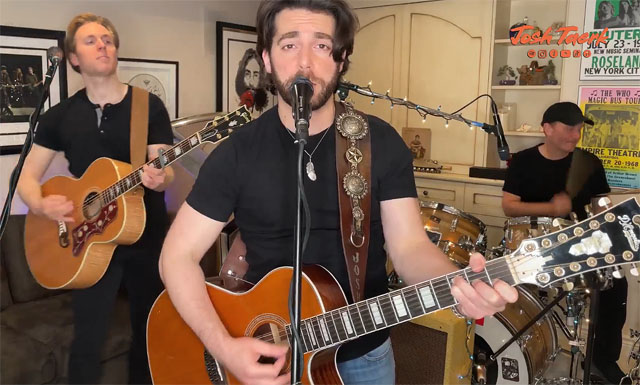
David Randall presents a weekly show on Get Ready to ROCK! Radio, Sundays at 22:00 GMT, repeated on Mondays and Fridays), when he invites listeners to ‘Assume The Position’. The show signposts forthcoming gigs and tours and latest additions at getreadytorock.com. This “Best of 2025 reviewer choices” show was first broadcast on 21 December 2025.
UK Blues Broadcaster of the Year (2020 and 2021 Finalist) Pete Feenstra presents his weekly Rock & Blues Show on Tuesday at 19:00 GMT as part of a five hour blues rock marathon “Tuesday is Bluesday at GRTR!”. The show is repeated on Wednesdays at 22:00, Fridays at 20:00). Pete’s Best of 2025 was first broadcast on 23 December 2025
How to Listen Live?
Click the programming image at the top of the page (top right of page if using desktop)
Get Ready to ROCK! Radio is also in iTunes under Internet Radio/Classic Rock
Listen in via the Tunein app and search for “Get Ready to ROCK!” and save as favourite.
More information and links at our radio website where you can listen live or listen again to shows via the presenter pages: getreadytorockradio.com
Power Plays w/c 26 January 2026
JOANNE SHAW TAYLOR Hell Or High Water (Journeyman Records)
TY FREEMAN One Way Love (indie)
GREY DAZE Monster You Adore (indie)
HOKKA Death By Cupids Arrow (Nuclear Blast Records)
PURPLE DOTS Stared At The Sun (Kycker)
SAINT AGNES Song For Mia (Spinefarm)
STREETLIGHT Shake That Feeling (Frontiers)
Featured Albums w/c 26 January 2026
09:00-12:00 The Best of 2003 – 2025 (Melodic Rock)
12:00-13:00 The Best of 2003 – 2025 (Melodic Hard Rock)
14:00-16:00 The Best of 2003 – 2025 (Singer Songwriter)
Our occasional Newsletter signposts latest additions to the website(s). We also include a selection of recent top albums, based on GRTR! reviewer ratings. The newsletter is sent out a few times a year.
If you’d like to register to receive this occasional mailing please complete the form:
If using a smartphone/tablet please tap here or re-orientate your device
(Note that this registration is separate from site registration which allows you to leave comments and receive daily emails about new content. If you wish to register for this – in addition or separately – please click or tap here – for more information – the form is at the foot of each page. Please read our privacy policy when opting-in to receive emails.
Recent (last 30 days)

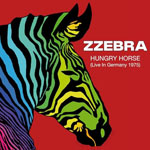
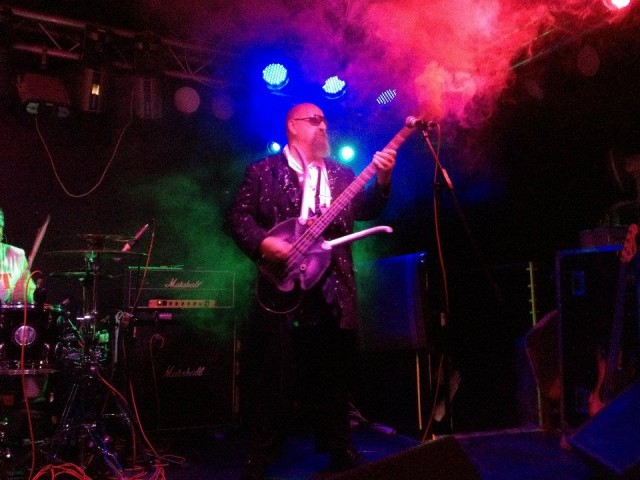
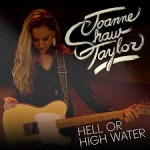
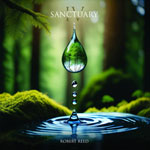
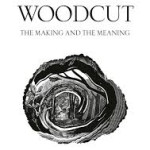
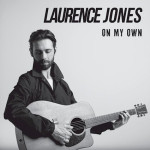
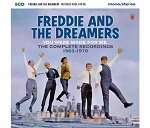
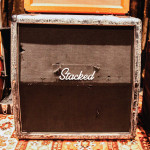
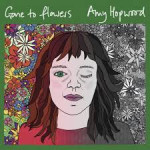
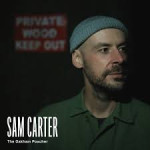
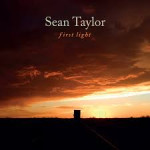
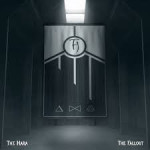
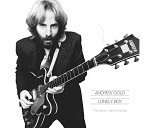
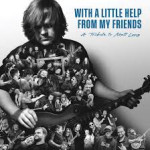

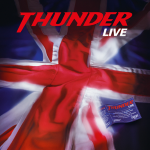
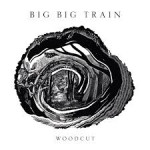
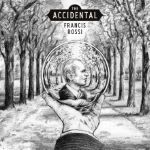
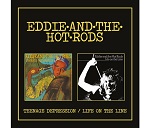
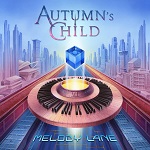
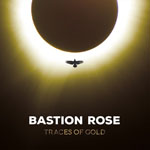
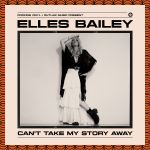
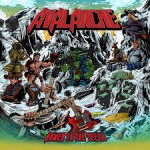
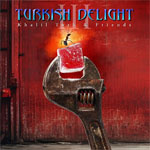

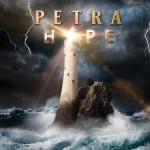

 PDF - you can delete unwanted sections
PDF - you can delete unwanted sections

















